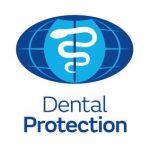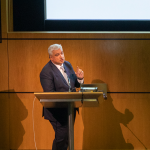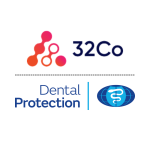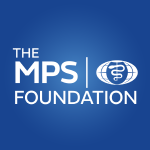Dental Protection – the world’s leading not-for-profit, member-owned dental defence organisation – is proud to achieve the industry-recognised Menopause Friendly Accreditation.
Dental Protection, part of Medical Protection Society (MPS), serves and supports the profession, including looking after the physical health and emotional wellbeing of its members and people, most of whom are female.
Committed to understanding the various factors which can negatively affect a woman’s wellbeing and ability to flourish at work, MPS recognised the need to talk openly about menopause and put the right support in place for those who need it.
MPS became a Menopause Friendly member in 2022 and embarked upon implementing operational and cultural changes to support its colleagues.
A wide range of interventions created and led by colleagues include:
- Establishing a MenoChat group, which provides amazing peer-to-peer support and has been instrumental in helping people to manage the symptoms of menopause in a safe, friendly environment.
- ‘Ask me anything’ sessions which have been significant in normalising the conversation.
- The formation of a Menopause Network which seeks to understand the wider impacts on colleagues and the business, build awareness and smash taboos.
- Training and supporting Menopause Advocates.
- Conducting Menopause Awareness training for senior leaders, managers and colleagues.
- Calling for more training, support and flexible working arrangements for dentists and dental professionals going through the menopause, to reduce the risk of a potential exodus of passionate and skilled clinicians from the workforce.
- Providing free, confidential counselling for their members who are struggling with menopause symptoms at work.
“We’ve seen perceptions change and know people now feel confident to open up and talk about menopause with their peers and manager,” says Professor Dame Jane Dacre, MPS President. “We decided to apply for the Menopause Friendly Accreditation to show our members, colleagues and stakeholders that we take this very seriously as a long-term commitment and aren’t simply following the media trend or ticking a box,” she says.
High standards
The Menopause Friendly Accreditation, established by Henpicked: Menopause In The Workplace (www.menopausefriendly.co.uk), recognises high standards and proven practices that embrace menopause in the workplace. Employers are required to demonstrate evidence of their effectiveness in six key areas, namely: culture, policies and practices, training, engagement, facilities and evaluation. As such, the Menopause Friendly Accreditation is truly meaningful and considered by many as a mark of excellence for menopause in the workplace.
“Working with Henpicked and Menopause Friendly Accreditation has given MPS an excellent opportunity to learn best practice from, and benchmark ourselves against, other inclusive organisations,” says Lisa Davis, Executive Director of People and Culture at MPS.
Cultural change
“Our Menopause Network and monthly support groups have seen a high level of engagement in the topic – in team meetings, blogs and colleague forums,” continues Lisa. “Particularly good to see is that we have people from across the business, many of whom are not directly affected, asking what they can do to support their fellow colleagues, family members and friends.”
Being menopause friendly enriches an organisation’s culture and MPS believes an important first step is to assess where an organisation sits culturally and to what level people are aware of menopause and how the symptoms can add additional challenges to working.
“We have a diverse workforce spanning four continents,” says Jane. “We recognise menopause and the associated symptoms vary widely, and regional and cultural differences may further affect each woman’s experience. Therefore, we took onboard feedback from our colleagues to ensure our support is fully inclusive and respectful of different views.
“One highlight for me was to learn from some colleagues that menopause is seen as a time to focus more on one’s spiritual and inner life and is something to be embraced. This refreshing and positive view is certainly one we share and encourage.”
To find out more about The Menopause Friendly Accreditation, visit www.menopausefriendly.co.uk
To find out more about MPS’s Supporting doctors through the menopause, click here.













